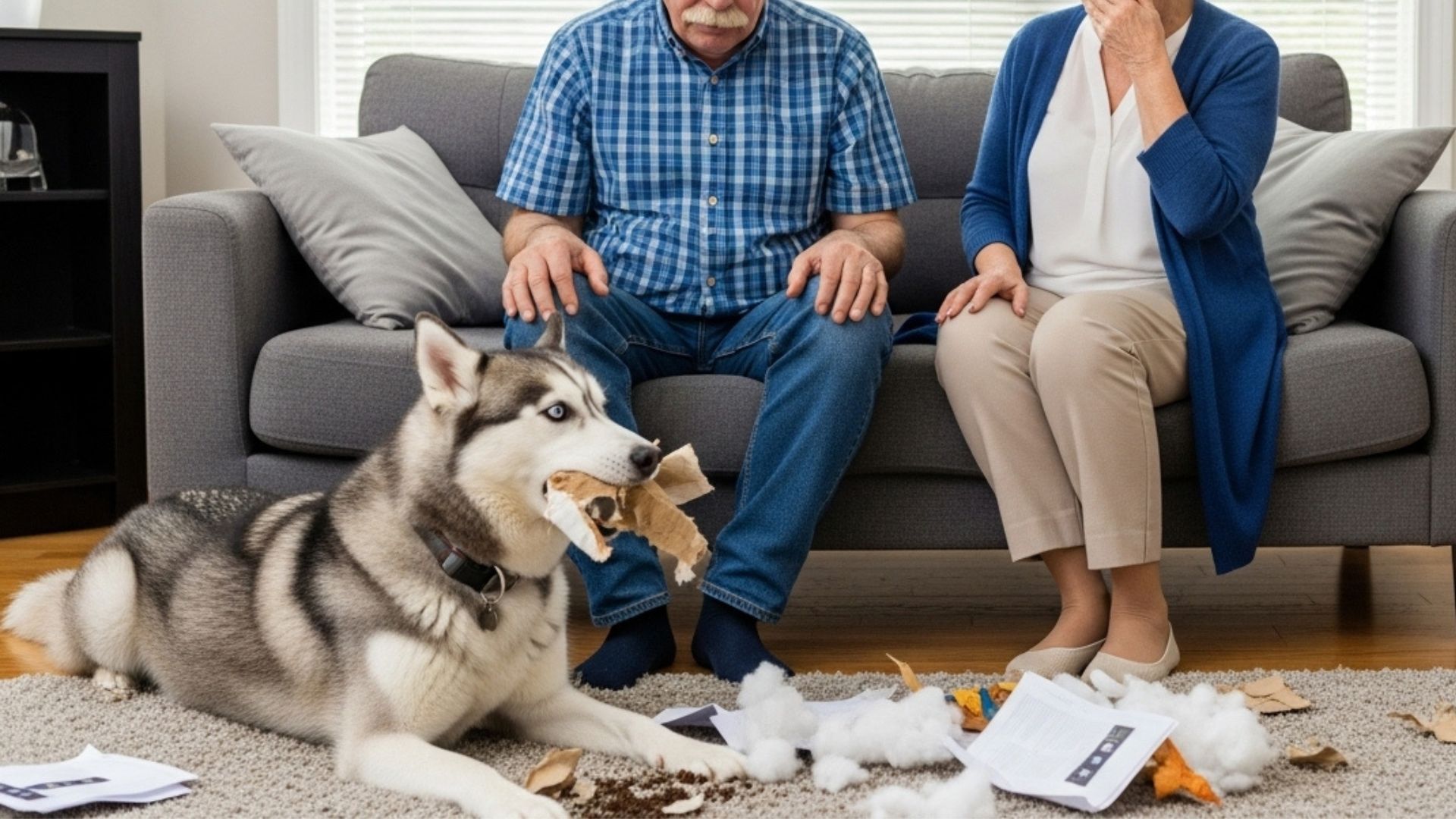Choosing the right dog later in life isn’t just about companionship—it’s about safety, comfort, and peace of mind. The wrong match can turn daily routines into overwhelming challenges.
As much as dogs bring joy and unconditional love, some breeds come with needs that can be physically demanding. High energy levels, strength, or stubborn temperaments can put stress on elderly couples who deserve ease, not constant strain.
It’s natural to imagine retirement with a gentle friend curled at your feet, not a whirlwind of energy that drags you down the street. The emotional toll of managing an unsuitable dog can outweigh the happiness they’re meant to bring.
Practicality matters too. From grooming to exercise requirements, the reality is that certain dogs demand more than what fits a slower-paced lifestyle.
This guide highlights essential breeds to avoid, helping elderly couples protect their well-being while still celebrating the incredible bond only dogs can offer.
Dog Breeds to Avoid for Elderly Couples
1. Dalmatian
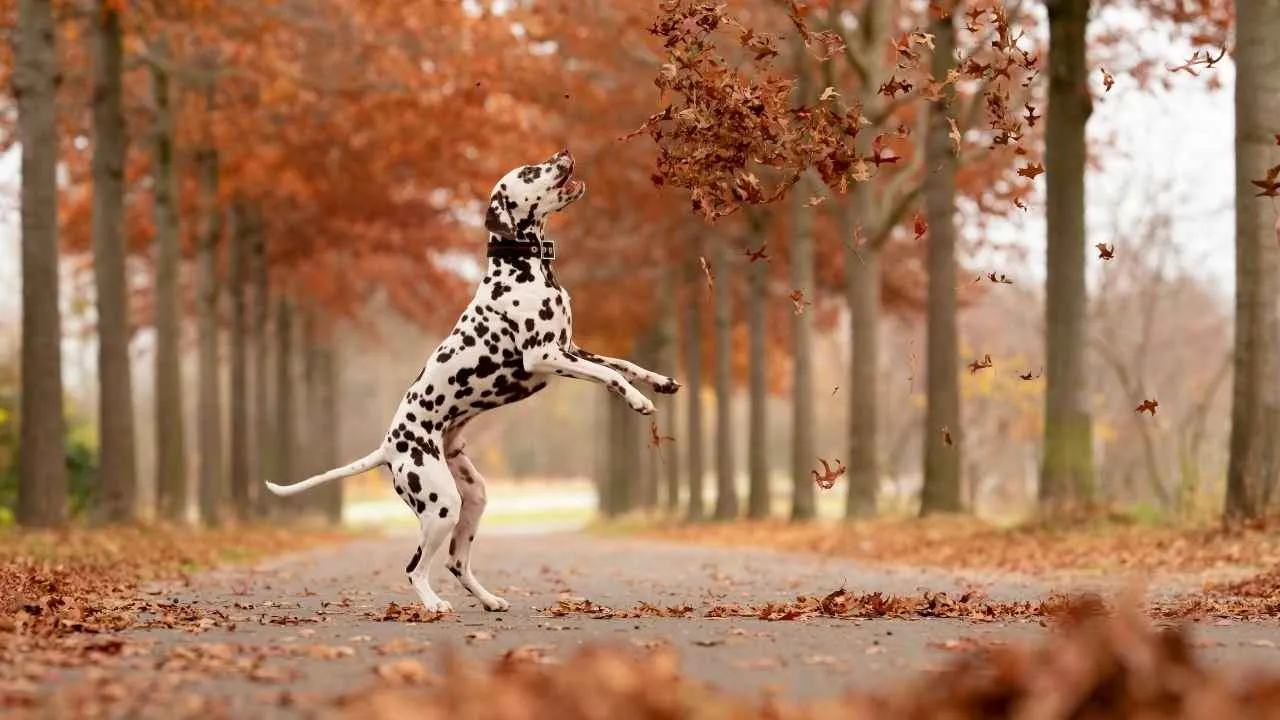
At first glance, this spotted star looks like the perfect movie companion, but the reality for elderly owners is very different. Beneath the charm lies a breed built for endurance and endless activity.
Dalmatians were historically used as carriage dogs and hunting dogs, which explains their high stamina and constant need for physical stimulation. That’s a big challenge for senior living.
AKC warns that without plenty of exercise and mental stimulation, this breed often develops destructive habits, testing the patience of even experienced pet owners. An older person may struggle to keep up.
Strong-willed by nature, Dalmatians aren’t the easiest when it comes to obedience training. Early socialization and proper training are essential—but difficult for senior citizens to provide consistently.
Another concern is health. This breed is prone to urinary issues and deafness, conditions that require vigilant care. That adds to their high-maintenance profile.
While they’re undeniably unique, Dalmatians land on many lists of worst dog breeds for seniors for good reason. They simply ask too much.
For elderly couples dreaming of quiet walks and cozy evenings, this is one of the most unsuitable dog breeds for their lifestyle.
2. Australian Shepherd
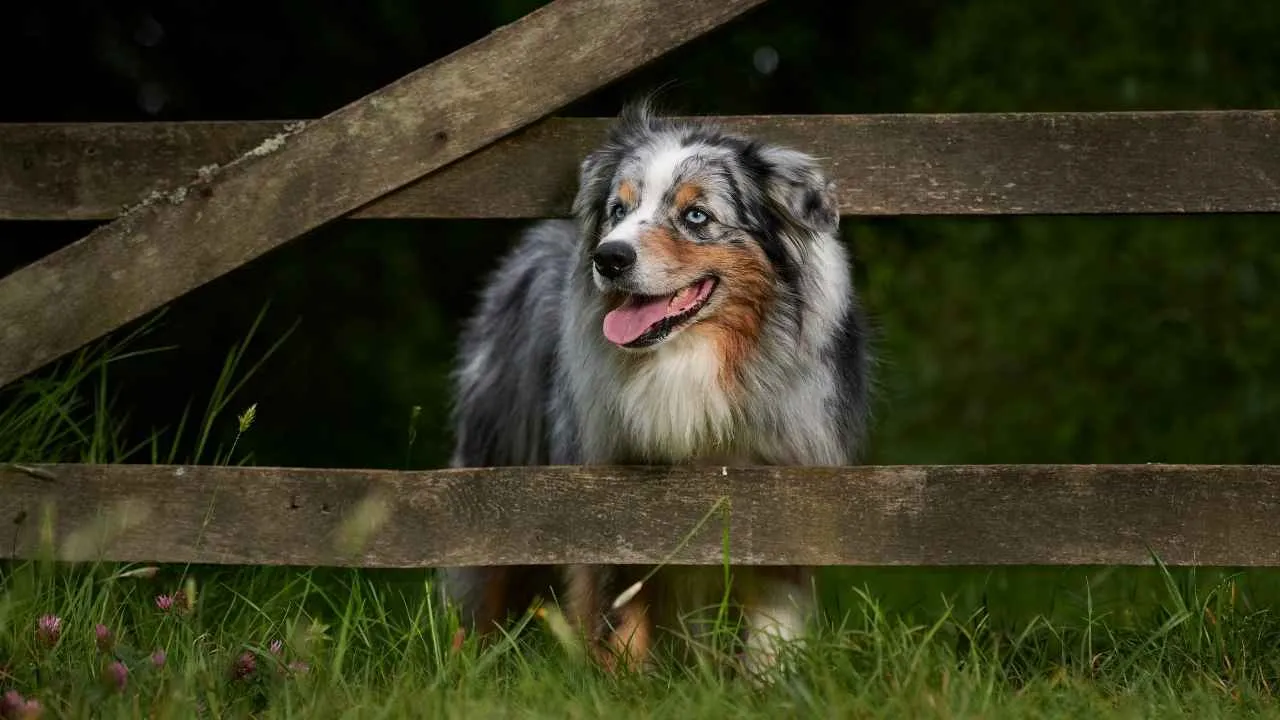
This herding breed is dazzlingly intelligent, but that sharp mind comes with an almost unstoppable drive. For elderly couples, managing such intensity can be exhausting.
Australian Shepherds were bred to control livestock, and their instincts remain strong. Without enough physical stimulation, they may resort to nipping or herding family members—something an elderly person could find overwhelming.
They’re also among the most high-energy dogs, often compared to border collies in their need for activity. That makes them a mismatch for senior owners seeking balance over chaos.
Obedience training is not optional here—it’s critical. Even then, a skilled trainer may be needed to channel their energy into canine sports or complex tasks.
Their grooming needs add another layer. Frequent brushing and coat care become necessary, which can feel like too much for older owners managing daily routines.
Despite their reputation as wonderful companions for active families, this is one of the worst dogs for seniors. Their breed’s characteristics simply don’t align with the slower pace of retirement.
Elderly couples searching for the right dog breed should look to calmer, less demanding companions among other breeds.
3. Cocker Spaniel
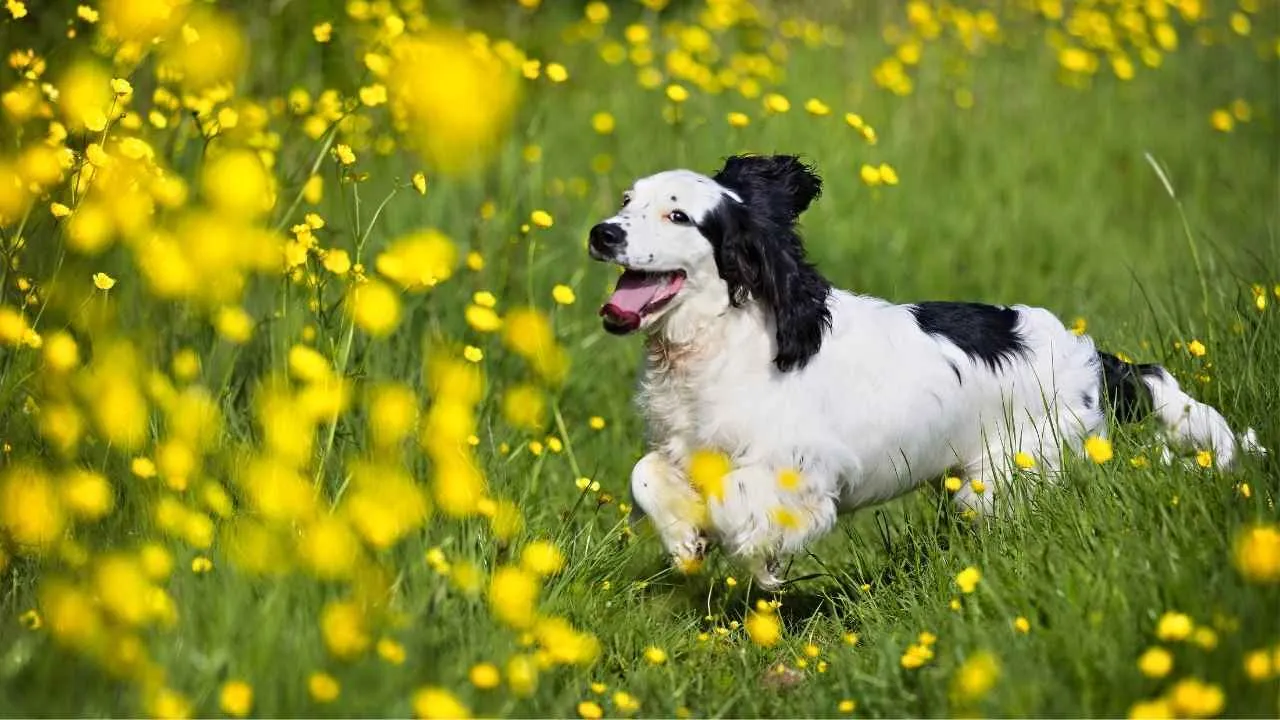
With their soft eyes and silky coats, Cocker Spaniels seem like ideal pet dogs, but appearances can be deceiving. Behind the charm lies a breed that can overwhelm senior owners.
Originally bred as hunting dogs, they still carry bursts of energy that require regular exercise and stimulation. For an elderly person, those daily demands can feel relentless.
Cocker Spaniels are also among the breeds prone to chronic health problems. Ear infections are common, and their grooming needs are high maintenance. Frequent brushing and cleaning become non-negotiable.
While they are affectionate, their temperament can sometimes surprise families. Stress, anxiety, or poor early socialization may lead to sudden snapping, making them one of the more unsuitable dog breeds for older owners.
PetMD advises that proper training is vital, but consistency and patience are not always easy for senior citizens to provide.
This combination of health issues, grooming requirements, and unpredictable behavior makes them difficult companions in retirement.
For elderly couples seeking stability and peace, other dogs with calmer temperaments may be far better suited.
4. Chow Chow
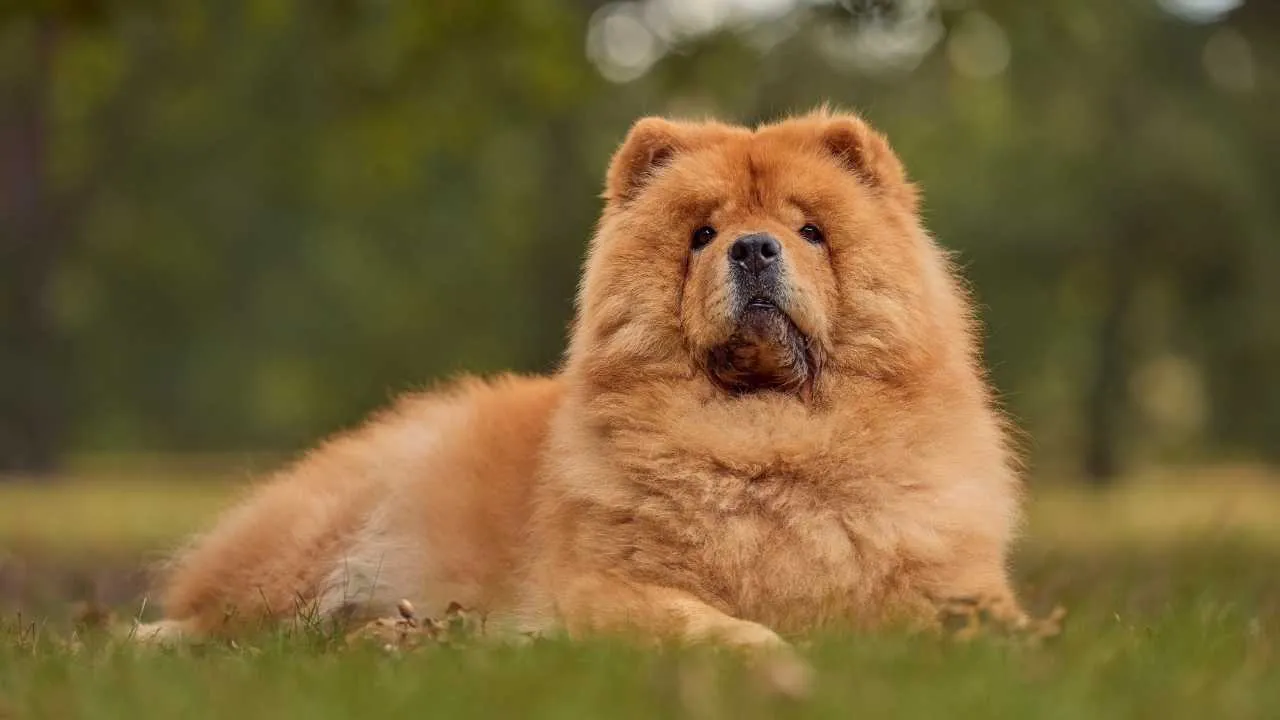
The Chow Chow looks like a teddy bear, but don’t be fooled—this breed is as independent as they come. For elderly owners, that aloof personality can be tough to handle.
Bred as a guard dog centuries ago, their instincts make them protective, sometimes to the point of aggressive behavior toward strangers or other animals. That’s a risk in senior living communities.
Training a Chow Chow requires firm consistency and early socialization. Without proper training, they may become stubborn or even territorial, creating stress for older owners.
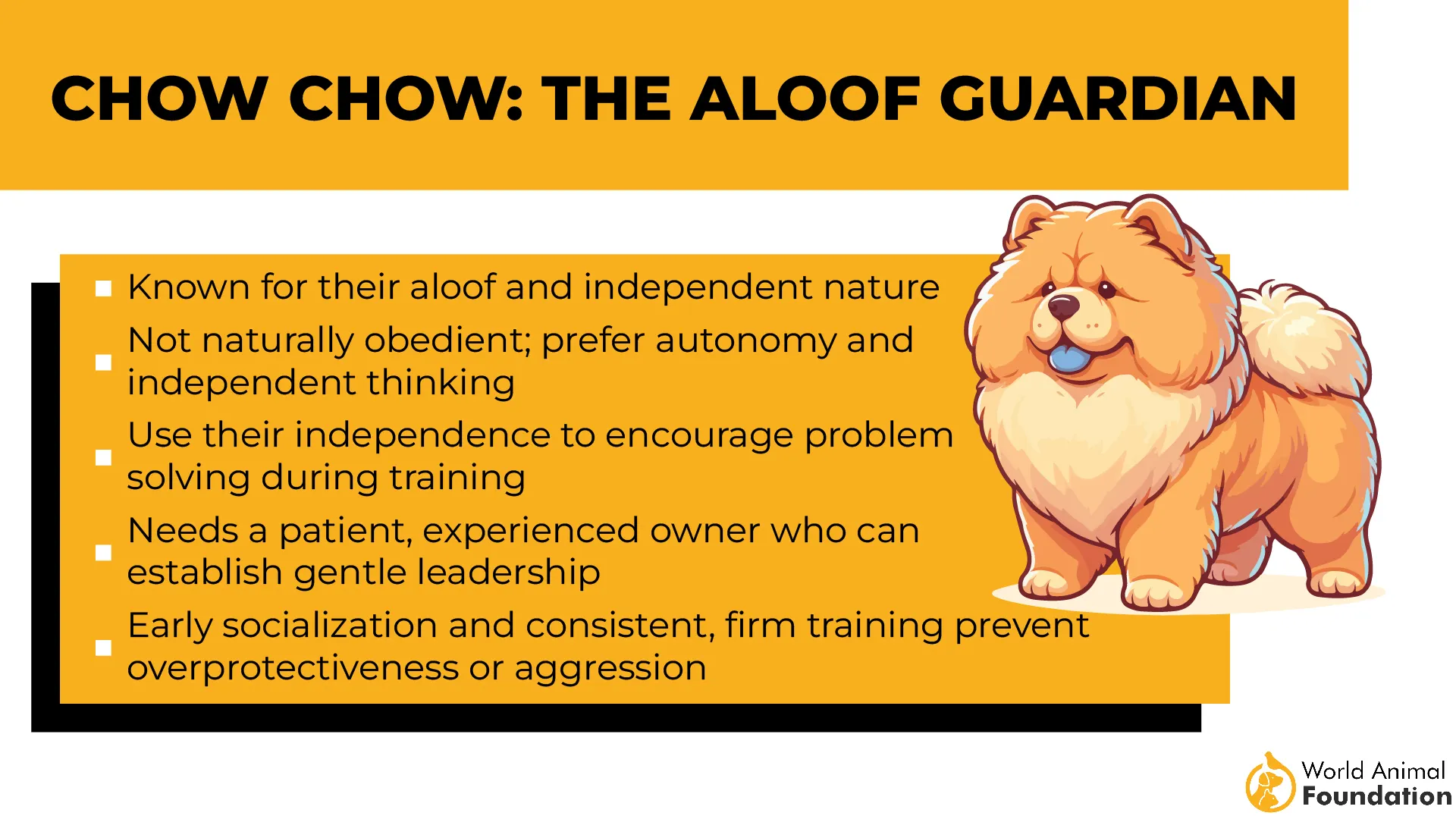
Their grooming needs are significant, too. That dense double coat demands frequent brushing, especially during seasonal shedding, which may be too much for senior citizens to manage.
Emotionally, this isn’t a dog that thrives on constant affection. They tend to be more reserved, which can disappoint couples looking for warm companionship.
The breed’s characteristics simply don’t match the needs of older pet owners.
In lists of worst dogs for seniors, the Chow Chow regularly makes an appearance—for good reason.
5. Siberian Husky
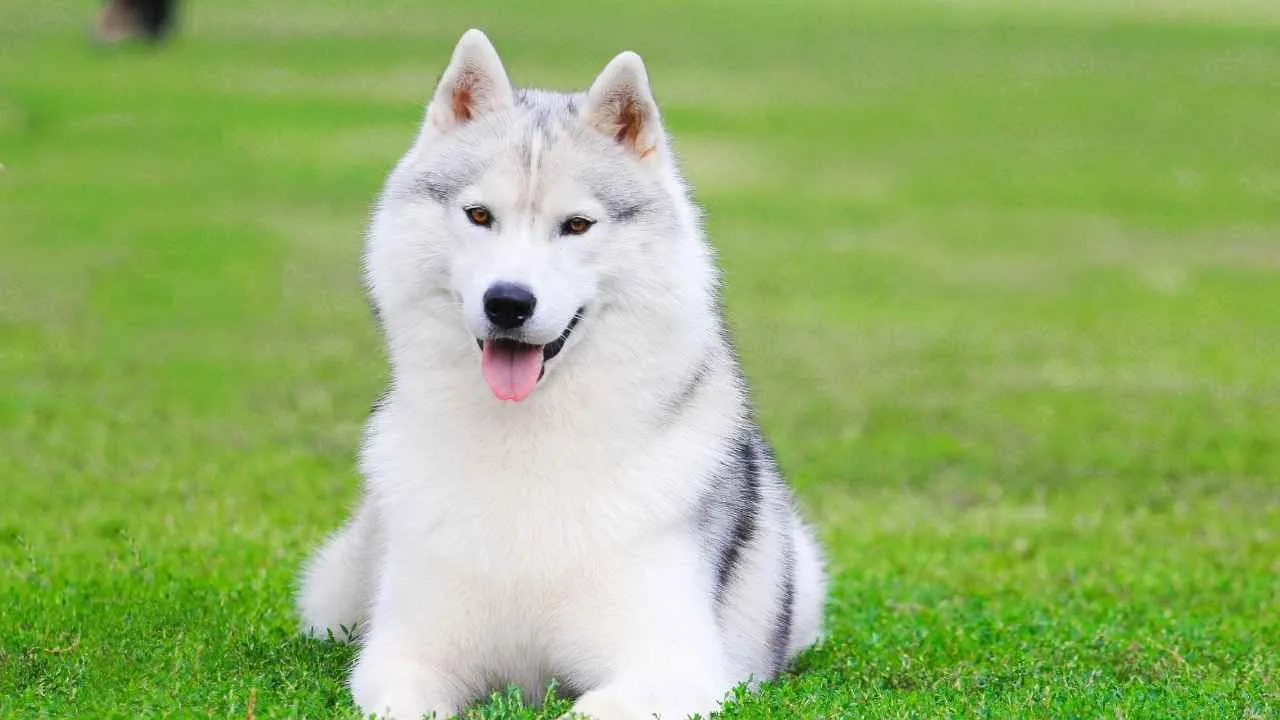
Few dogs are as striking as the Siberian Husky, but their beauty hides challenges that make them a poor fit for elderly couples. This is a breed built for endurance, not quiet companionship.
Huskies are one of the most high-energy breeds, originally bred to pull sleds across frozen landscapes. For senior citizens, keeping up with that level of physical stimulation is nearly impossible.
They are escape artists too—known to jump fences, dig under yards, and chase after other animals. That creates constant worry for pet owners with limited mobility.
Obedience training is another hurdle. Huskies are intelligent but notoriously stubborn, requiring persistence and skilled training methods. Elderly owners may find themselves outmatched.
Purina notes that shedding is another factor. Their thick double coat needs frequent brushing, making them high-maintenance in grooming needs.
While Huskies can be wonderful companions for active lifestyles, they are among the worst dog breeds for seniors seeking peace and manageability.
For couples in retirement, calmer and less demanding companions from other breeds are a much safer choice.
6. Rottweiler
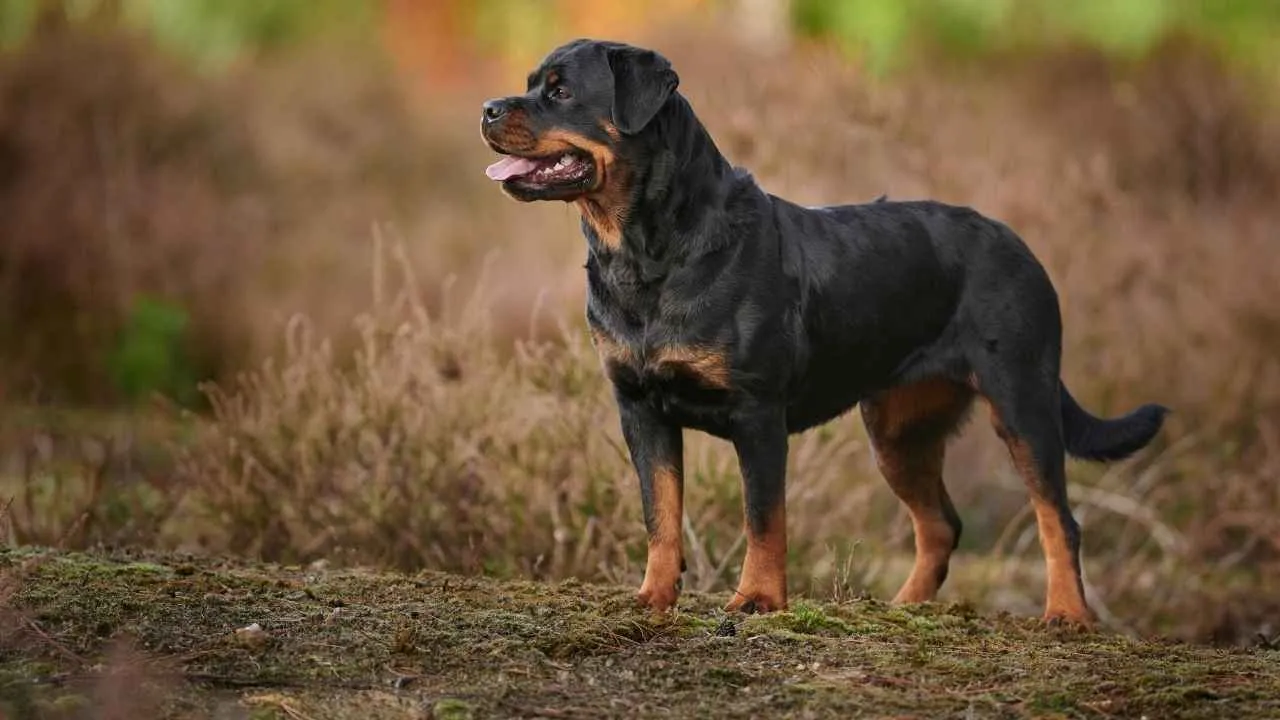
The Rottweiler is powerful, loyal, and protective—but these very qualities can make them overwhelming for elderly owners. This is not a breed that blends quietly into retirement living.
As one of the strongest large dog breeds, Rottweilers require firm leadership and consistent obedience training. Without it, their natural guarding instincts may escalate into aggressive behavior, especially around strangers or other animals.
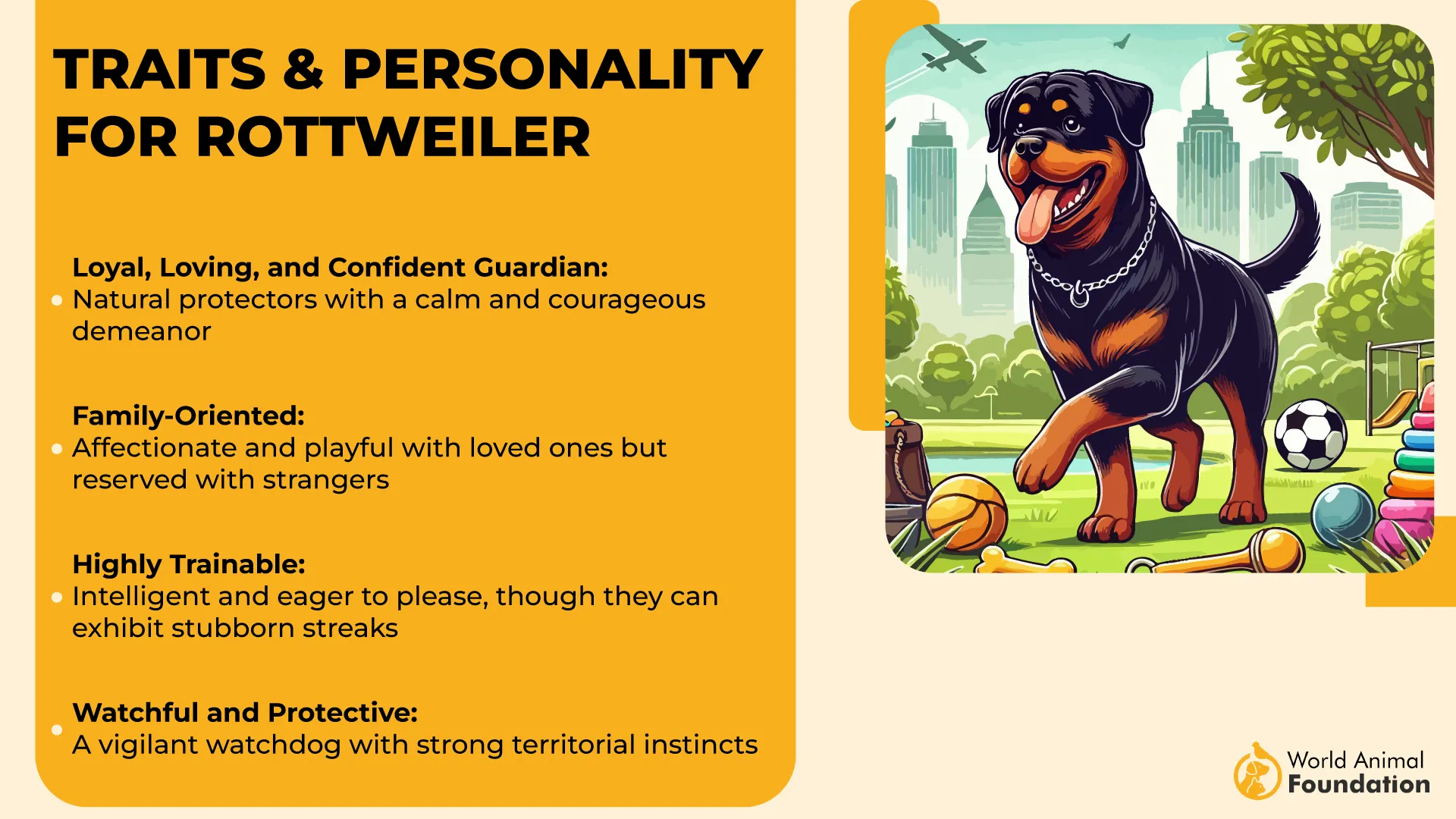
Handling such strength demands significant physical ability. An elderly person could easily be pulled off balance during a routine walk, putting safety at risk.
Beyond strength, this is a high-energy breed. They need both physical stimulation and mental stimulation daily, which is more than most senior citizens can realistically provide.
While they can be wonderful companions for younger families with experience, they’re considered among the worst dogs for seniors. Their breed’s characteristics simply clash with older owners’ needs.
For elderly couples seeking peace of mind, gentler and less demanding companions from other breeds are far better suited.
7. Akita
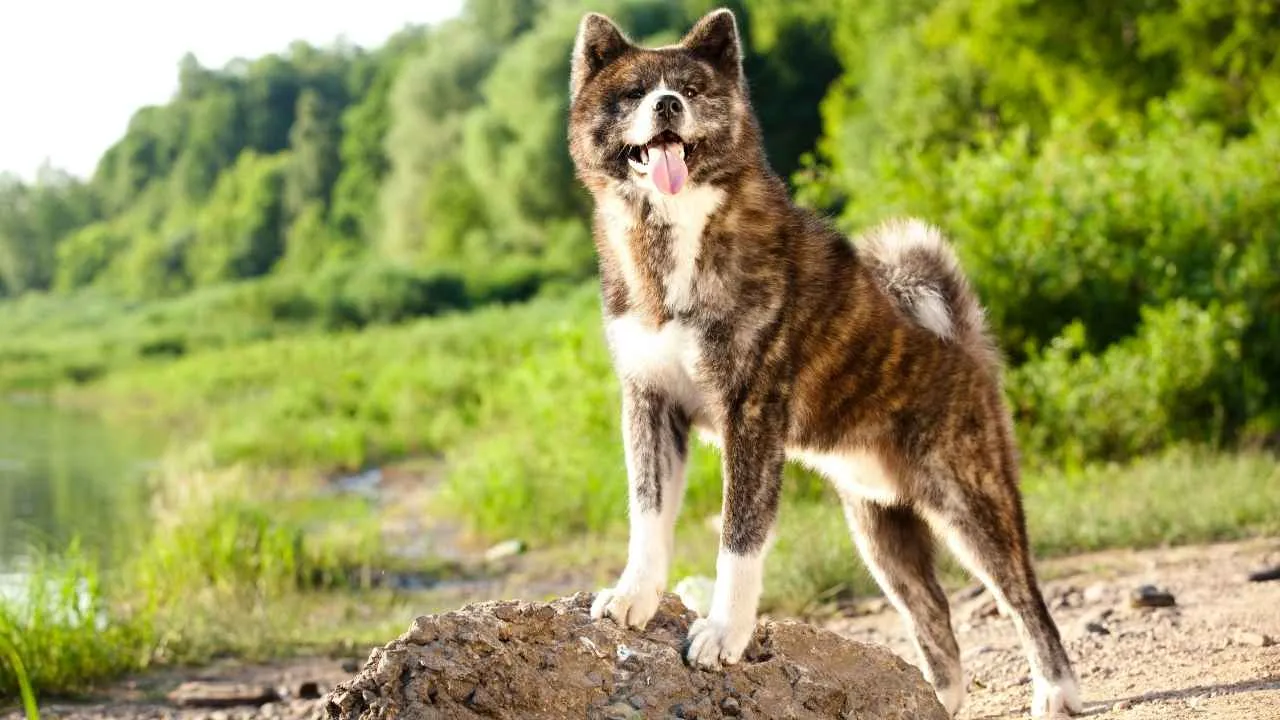
The Akita commands admiration with its noble presence, but behind the beauty lies a breed that challenges even skilled trainers. For elderly couples, this can quickly become unmanageable.
Britannica adds that originally bred as hunting dogs and protectors in Japan, Akitas carry strong guarding instincts. Without early socialization and proper training, they may become wary of strangers or even display aggressive behavior.
Their independence is another hurdle. Unlike other dogs who crave constant affection, Akitas prefer to make their own decisions, which can frustrate senior owners seeking companionship.
Physically, they’re one of the large breeds with significant strength. Handling such power requires confidence and stamina—qualities not always easy for older owners to sustain.
Grooming needs also add pressure. With their thick double coat, frequent brushing is necessary, especially during heavy shedding seasons.
These breeds’ characteristics make them one of the least suitable dog breeds for seniors who want ease and comfort.
In retirement, the right dog breed should lighten life, not complicate it—and the Akita often does the latter.
Conclusion
Who knew choosing a furry friend in retirement could feel like picking the wrong Netflix series—fun at first, then suddenly exhausting? The truth is, certain breeds simply demand more than senior living allows.
This guide spotlighted the big personalities that can overwhelm elderly couples. These dogs require too much energy, strength, or constant grooming, making them high-maintenance breeds rather than great companions for the golden years.
Of course, the world of different dog breeds doesn’t end here. Honorable mentions like Jack Russell Terriers, German Shepherds, Doberman Pinschers, and even fox-hunting specialists remind us that some specific breeds thrive better with extremely active pet owners.
And while small dog breeds, such as the Jack Russell Terrier, or small dogs with minimal shedding, may appear easy, even small breeds can pose challenges if not trained properly or house-trained from the start.
Meanwhile, popular favorites such as Labrador Retrievers and Golden Retrievers often appear in lists of wonderful companions—but even they can be unsuitable for senior citizens if not physically healthy or given the right structure. Observed differences across other dogs show that pet ownership success always depends on matching lifestyle with the breed’s characteristics.
So, what’s your take? Share your thoughts, swap stories of pet ownership wins (or dog bites!), and help fellow readers choose wisely. After all, the health benefits of the right dog breed are priceless—ask over half the senior owners who already enjoy calm, loving pets.


